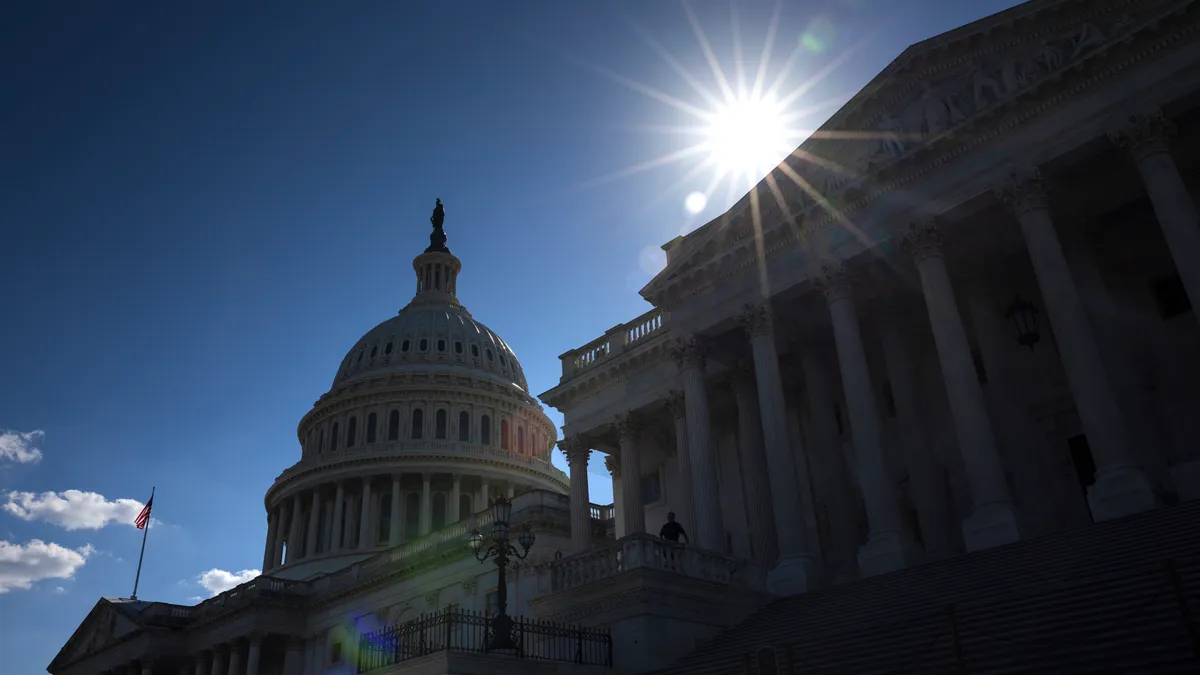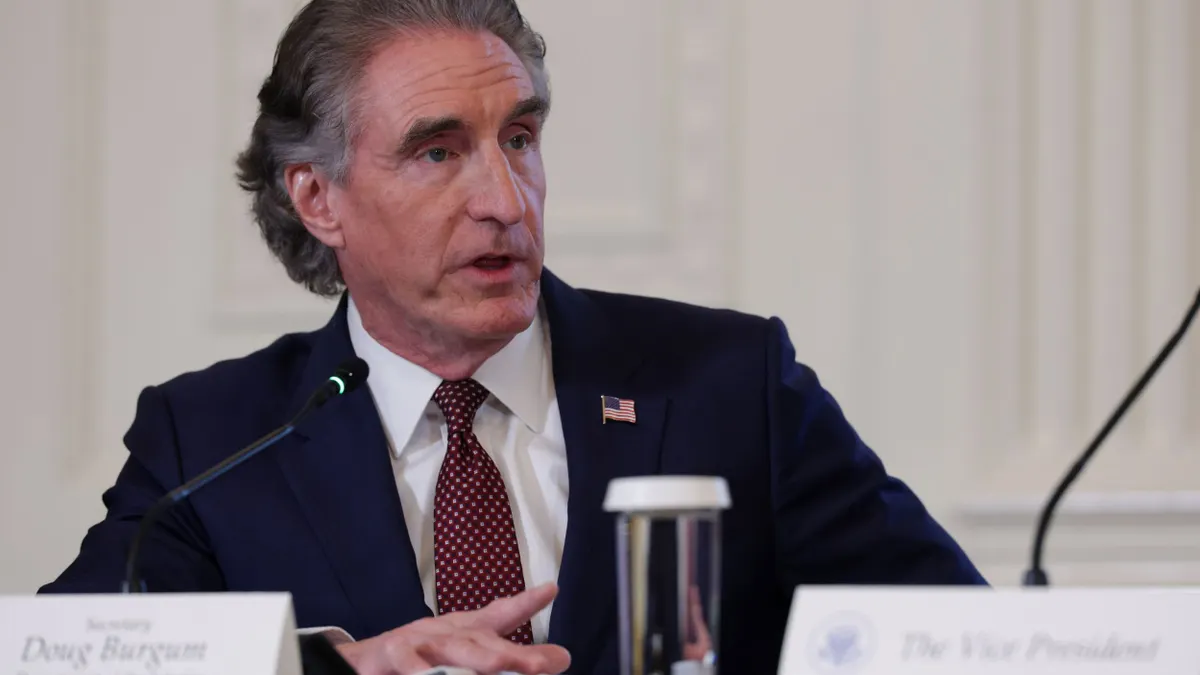In one of their last legislative weeks before November’s presidential elections, Republicans in the House of Representatives teed up and passed a pair of anti-ESG bills that would limit fiduciaries’ ability to consider non-pecuniary factors and the Securities and Exchange Commission’s ability to require new disclosures.
The chamber first passed H.R. 5339, a bill that would restrict pension fund managers from considering factors like ESG, on Wednesday with a 214-200 vote and without any Democrats supporting the measure. The House followed it up with the passage of H.R. 4790, a bill to limit the SEC’s disclosure promulgation authority, on Thursday on a 215-203 vote with three Democrats crossing the aisle to support the bill.
Rep. Bill Huizenga, R-Mich, called the passage of H.R. 4790 “a culmination of almost two years of work by House Republicans” in a Thursday press release. However, neither bill is likely to go anywhere in the Democrat-controlled Senate, as Reps. Sean Casten and Juan Vargas, respectively of Illinois and California, acknowledged Friday.
“The good thing is, these bills are going nowhere,” Vargas said in a Friday morning briefing hosted by pro-ESG 501(c)4 Unlocking America’s Future.
OMB says H.R. 5339 could ‘undermine’ ERISA
H.R. 5339, or the Protecting Americans’ Investments from Woke Policies Act, included anti-ESG provisions aimed at restricting the use of ESG factors by pension funds.
Among those were the Roll Back ESG to Increase Investment Retirement Earnings (RETIRE) Act, which would require pension fund managers to document any time they are unable to distinguish between investments on pecuniary factors alone and utilize a non-pecuniary factor. The fund manager would also have to explain how the selected investments compare to alternative plans and how the non-pecuniary factors are consistent with the plan’s beneficiaries.
The legislation appears aimed at the Department of Labor’s 2023 rule that included updated guidance on the agency’s tiebreaker standard. The rule allows pension fund managers to consider factors like ESG or other collateral benefits when two or more funds “equally serve the financial interests of the plan over the appropriate time horizon.
A challenge to that rule was initially dismissed by a U.S. district court before a federal appeals court returned the case to the U.S. Texas Northern District Court following the overturning of the Chevron deference.
Prior to the bill’s passage, the Office of Management and Budget within the White House came out in opposition to the bill, releasing a policy statement Tuesday that said the RETIRE Act could “undermine” the framework of the Employee Retirement Income Security Act.
“ERISA already requires fiduciaries to act solely in the interest of plan participants and beneficiaries,” OMB said. “ERISA ensures that retirement advisors, plan trustees and administrators, and all other covered entities who are fiduciaries make investment decisions with the singular goal of protecting or growing hardworking Americans’ life savings.”
The GUARDRAIL Act
H.R. 4790, or the Guiding Uniform and Responsible Disclosure Requirements and Information Limits (GUARDRAIL) Act of 2023 — whose passage was lauded by Huizenga, who led House Republicans’ ESG working group — would limit the SEC to only being able to require disclosures from companies on topics that the specific companies have determined to be material to investors.
“These sensible policies will encourage innovation, improve access to investment opportunities, and foster economic growth,” Huizenga said in the release. “The [bill] corrects the misguided social policies that have been weaponized by rogue regulators and liberal activist investors at the expense of financial returns.”
The GUARDRAIL Act would also establish a Public Company Advisory Committee of public company officials, executives and advisors that would provide advice on regulatory updates and priorities, public reporting and the proxy process. The bill would also require the SEC to list any mandate that requires the disclosure of non-material information on its website, and, separately, study any potential detrimental impacts on U.S. companies, investors and consumers would face due to the European Union’s climate risk disclosure and supply chain due diligence regulations.
Sustainable investing experts decried both bills ahead of their passage in a release distributed Tuesday by Petkanas Strategies. Andy Behar, CEO of shareholder advocacy nonprofit As You Sow, said the legislation will restrict material disclosures on issues like forced labor in supply chains, environmental-related risks and gender discrimination.
“This legislation will harm all investors,” Behar said in the release sent to ESG Dive. “The idea of taking these material disclosures away or having public company executives oversee the SEC with a ‘Public Company Advisory Committee’ will put the U.S. companies at a major competitive disadvantage with the rest of the world.”



















